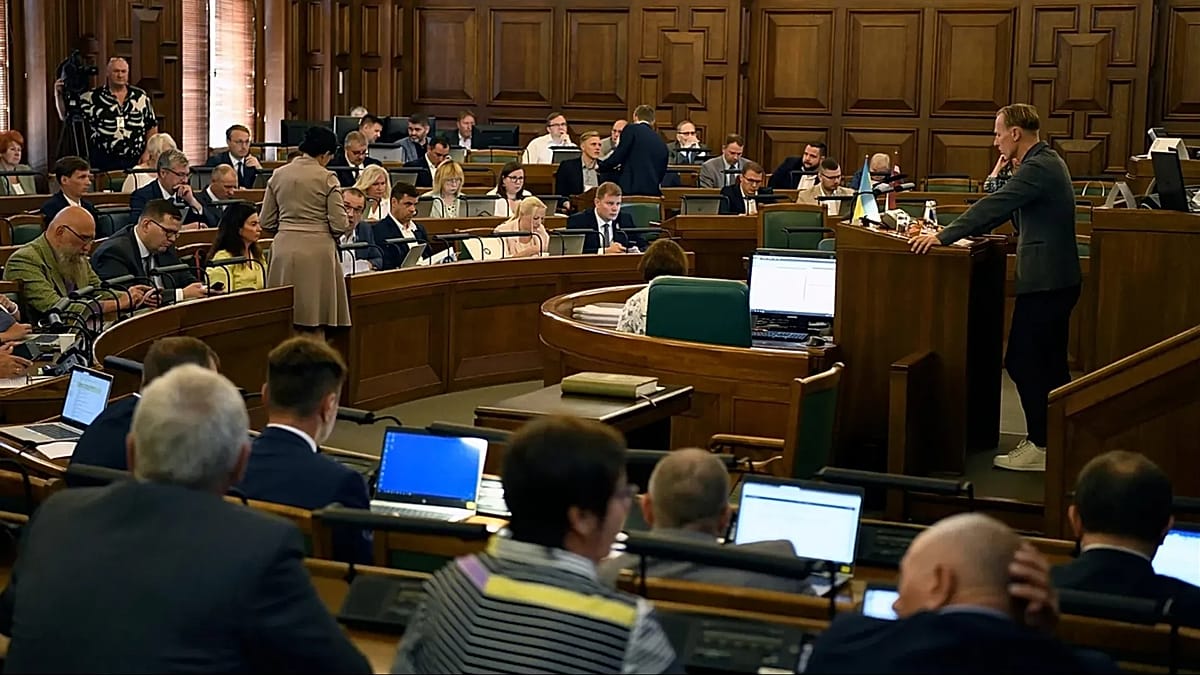Published on
Latvia’s President Edgars Rinkēvičs has said he is sending a law on the country’s withdrawal from the Istanbul Convention back to parliament for further review, public broadcaster LSM reported on Monday.
The parliament, or Saeima, voted on 31 October to withdraw from the human rights treaty which opposes violence against women and domestic violence.
32 lawmakers voted to stay in the treaty, while 56 voted to leave, saying the treaty promotes “radical feminism based on the ideology of gender”. There were two abstentions.
Rinkēvičs said withdrawing from the treaty would send a “contradictory message.”
“The ratification and denunciation of the Convention during one Saeima term sends a contradictory message to both Latvian society and Latvia’s allies internationally about Latvia’s readiness to fulfill its international obligations in good faith,” Rinkēvičs said in a letter.
“It should also be taken into account that Latvia would be the first European Union member state to withdraw from an international human rights treaty. It should be seriously assessed whether such action is compatible with the principle of loyal cooperation enshrined in the Treaty on European Union.”
Rinkēvičs also said it might be better for the next parliament to decide the issue since Latvians head to the polls in a general election no later than 3 October next year, suggesting the Saeima park the issue for the best part of a year.
The president has the constitutional right to request that Saeima rethink its decision, but cannot unilaterally reverse it.
Signed by 45 countries and the European Union as of 2019, the Council of Europe treaty is meant to standardise support for women who are victims of violence, including domestic abuse.
However, ultra-conservative groups and political parties across Europe have criticised the treaty, arguing that it promotes “gender ideology,” encourages sexual experimentation and harms children.
Opposition MPs in Latvia started the process of possibly withdrawing from the treaty in September. The Union of Greens and Farmers, an agrarian alliance member of the tripartite ruling coalition led by Prime Minister Evika Siliņa’s centre-right Unity party joined them.
Siliņa, whose coalition government came to power in 2023 with a promise to ratify the convention, has criticised the efforts to withdraw from the treaty.
“Those who have been brave enough to seek help are now witnessing their experiences being used for political battles,” Siliņa wrote on social platform X in October. “It is cruel.”
On the day of the vote, the European Commission said that Latvia would still be obliged to respect international rules for the protection of women.
The move to walk away from the Istanbul Convention was seen by civil society organisations as backtracking on fundamental rights.
The Istanbul Convention is a treaty which aims to prevent and combat violence against women and has been signed by all the European Union’s member states and several other nations outside the EU, like the United Kingdom and Norway.
The EU as a whole acceded to the Istanbul Convention in 2023, making it a legally binding agreement for the 27 member states in areas falling under the EU’s competence.
Those include EU institutions and the public administration, judicial cooperation in fighting crime and asylum rights.
But Bulgaria, Hungary, Slovakia, the Czech Republic and Lithuania have not ratified the convention.

